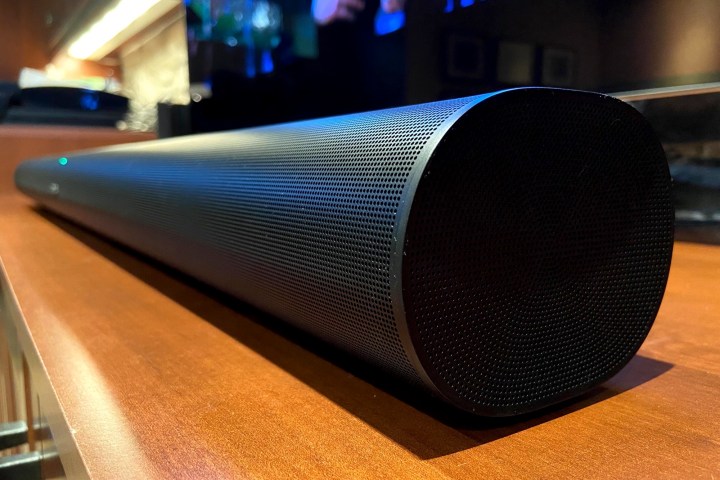Sonos has had a bad summer. It hasn’t been a particularly easy few years for the upscale wireless audio company — its stock is basically one-third of where it was in early 2021 — but this summer has been especially brutal.
For those of us on the consumer side of things, 2024 started pretty optimistically. Sonos in November 2023 started teasing that the following year would see new products in new categories. Headphones almost certainly were one of them — coming after years of leaks and rumors. What ultimately became the Sonos Ace were a long time coming. They turned out to be very good headphones, and an important product category for Sonos.
But just before the headphones were announced, Sonos launched a major update to its app. The public discourse at the time was that this was more of a visual update. But it didn’t surprise anyone that it’d also contain the underpinnings of code to support these new headphones.
Sonos isn’t an inexpensive brand, but it’s also been a bit of a magical one because it always just worked. You’d have speakers all over your house — I’ve had a couple outside for years — and music would play wherever you wanted it to, whenever you wanted it to.
Then things started going wrong for Sonos. Very wrong. Everyone’s situation is different, of course. Different individual Sonos speakers. Different generations of speakers. Differing speaker pairings. Different music services. But issues seemed nearly universal. Maybe it was a favorite feature that disappeared — something as simple as a sleep timer. Or maybe you’d struggle to get music to play at all. I found a little respite in a third-party app, but that’s not a good answer.
Sonos, for its part, fairly quickly started addressing concerns in the Sonos subreddit. That’s fine for the extremely online, but not great for most normal folks. CEO Patrick Spence finally publicly acknowledged the issues in a blog post in July — some two months after we’d all been suffering. And the app issues dominated Sonos’ earnings call on August 7, 2024, with Spence announcing that two new products would be delayed, and the company was planning on spending $20 million to $30 million to fix things.
He also said the following: “We are enacting programs this quarter to both support and thank our customers and partners for sticking with us through this period, and turn their dissatisfaction to delight.”
I don’t know exactly what that means. I don’t have any idea how Sonos might be able to “delight” customers after what they’ve been subjected to this summer. Presumably Sonos will tell us at some point.
But I do have a couple of questions.

Will we be asked to spend even more money?
A common train of thought is that Sonos — which historically hasn’t been huge into discounts but lightened up on that front a bit in the past couple of years — could give current customers the ability to upgrade products at a pretty steep haircut.
That’s not nothing. But the more cynical view is that you’re being compensated for Sonos’ major missteps by being given the opportunity to spend more money. With Sonos.
On the other hand, we know Sonos has new products coming out — because this whole debacle has delayed two of them, which the company has said are ready to go. And a 50% (or more?) discount would be really hard to pass up, given that Sonos never does deals like that.
And expecting Sonos to send a pair of Ace headphones to current subscribers probably is too much to ask. Probably.
Will Patrick Spence keep his job?
I’ll admit I feel a little weird even asking this. I don’t typically care who the CEO is of a company. I mostly long for the days in which we didn’t even know who the CEO was, because they were too busy being the CEO to care about being a part of the zeitgeist.
Nor do I particularly care about the business side of things. Has Spence done well during his tenure? Probably. Otherwise he wouldn’t have been elevated from chief commercial officer to CEO, and he wouldn’t have been at Sonos for a dozen years now.
This software debacle has been a major debacle. That shouldn’t be downplayed. Some of the fallout can be measured. Spence said the company is spending between $20 million and $30 million to rectify things. Details on what that actually means were a little unclear. Is that $20 million or more being spent on software engineers and everything else it takes to build a platform? Or is it something else?

Sonos said that’s actually less than the expected loss of revenue from delaying two products that apparently are shelf-ready. That’s a huge deal going into the holiday buying season.
And keep in mind that we’re probably not just talking about sending out a press release announcing a couple of new products, then selling them on the website. Sonos usually does press events for major launches. That’s an entire cycle that’ll have to be rebooted and rescheduled.
“While the redesign of the app was, and remains, the right thing to do, our execution — my execution — fell short of the mark,” Spence said in the earnings call. “Since I took over as CEO, one of my particular points of emphasis has been the imperative for Sonos to move faster. That is what led to my promise to deliver at least two new products every year — a promise we have successfully delivered on. With the app, however, my push for speed backfired.”
How did Spence — and he almost certainly wasn’t the only one — not recognize that running into a wall head first was a bad idea? It’s not like the idea of moving too fast for one’s own good is new to the tech space.
Spence should get some credit for taking responsibility. But that’s the job. That’s what’s expected of the person in charge.
But when things go really, really wrong, as they did in May for Sonos, you should also not be surprised to find someone else in charge, once all the dust settles.
What do we deserve?
Sonos is in a weird spot. It already has our money in that we’ve bought speakers — or a number of speakers — over the years. And up until May, they worked very, very well. But for as much as the company talks about a flywheel, it doesn’t really have customers in a recurring revenue situation. There’s no subscription fee to use Sonos, nor should there ever be.
And Sonos doesn’t owe current customers new hardware for its software missteps. That’s just not realistic. Discounts on new hardware would help, but not really address the elephant in the room.
The matter of Spence is one for shareholders, not customers. (Though the latter should influence the former.)
The question, really, is what Sonos can do to regain trust. It needs to fix its app, and the stability of the Sonos system as a whole. And it needs to ensure that stability. I’m sure that will happen. The question is how long it will take, and how many more bad headlines it’ll have to endure in the meantime.
We can put a $20 million to $30 million price tag on that trust. But that’s just what it’s costing to fix things. What the future will cost for Sonos? That remains to be seen.




